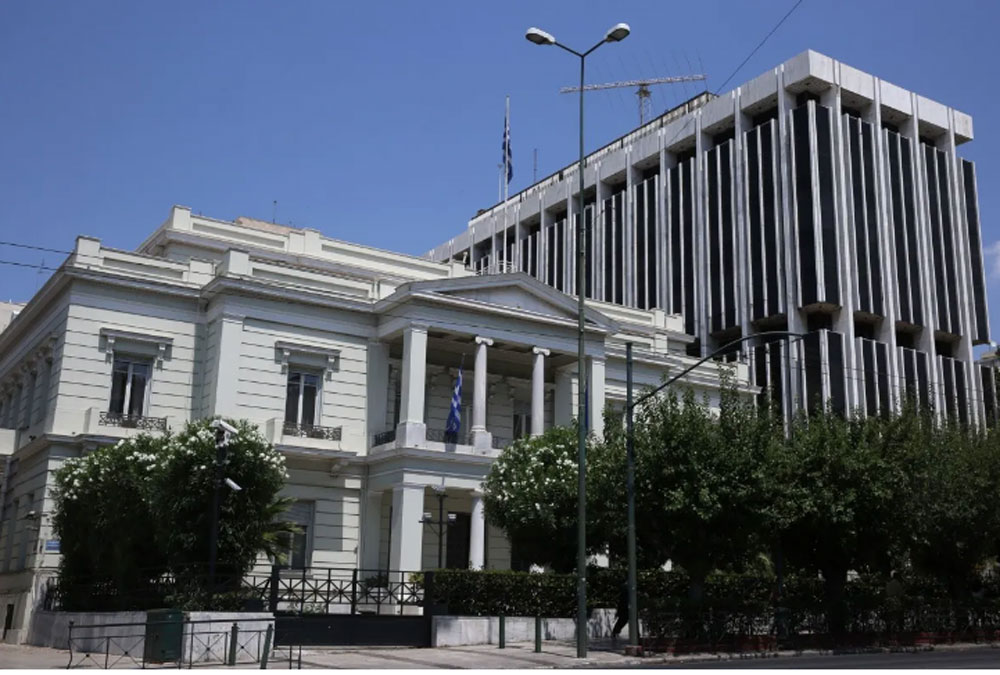
By Hicham Mourad
Turkey is very angry about the dismissal of Mohamed Morsi by the Egyptian army. Prime Minister Recep Tayyip Erdogan refused to recognise the new rulers of Egypt, while his foreign minister, Ahmet Davutoglu, warned against a “domino effect” in the other countries of the Arab Spring (Tunisia, Libya, and Yemen) if the international community endorses the “coup.”
Only Turkey has so far qualified the removal of Morsi a coup. Ankara, through its Minister of European Affairs, Egemen Bagis, even asked the Security Council of the United Nations in the aftermath of the overthrow of Morsi to “take action” in Egypt, before returning to this statement and adopting a more flexible position to preserve its relations with Cairo.
Turkey abstained, for example, from summoning the Egyptian ambassador in Ankara after the summoning of his Turkish counterpart by the Egyptian foreign ministry to protest against the statements of Turkish officials considered an intervention in the internal affairs of Egypt.
Turkish diplomatic sources also have ruled out that Turkey will recall its ambassador to Cairo or sever its diplomatic relations with Egypt due to the removal of Morsi.
However, it is likely that bilateral relations will suffer, as long as Turkey continues to refuse to recognise the current regime. This could last until the holding of legislative and presidential elections in Egypt, planned in principle to be within the next six and nine months respectively. The political identity of the regime that will emerge will determine the nature of future relations with Turkey.
The strong reaction of Turkey to the overthrow of Islamist president Mohamed Morsi, who hails from the Muslim Brotherhood, can be explained by three main reasons.
The first is that the fall of Morsi and the political regime of the Brotherhood is a blow to the ambitions of Turkey in the Arab world and the Middle East. Thanks to its economic success and its stable democracy, Turkey under the Islamist Party of Justice and Development (AKP) sought to expand its influence in the region and, beyond, to become a model for Arab countries that have revolted and overthrown their authoritarian rulers.
These uprisings have resulted in Egypt and Tunisia in the accession to power of moderate Islamists, as in Turkey, who belong to the Muslim Brotherhood movement.
Turkey saw an historic opportunity to strengthen and expand its political, economic and cultural influence in an Arab world which, on the whole, looked until recently to Turkish neo-Ottoman ambitions with great suspicion. In this context, the alliance that was forged between Turkey and Egypt under the Muslim Brotherhood was designed by Ankara as a conduit for influence in this country and beyond, across the Arab world.
Thus, the damage suffered by Ankara is not limited to the loss of a major ally needed to extend the influence of Turkey, but it hit hard its ambition to rise as a regional model, thanks not only to its economic success, but also its ability to reconcile Islam and democracy, despite the recent authoritarian drift of Erdogan and the growing disrespect of political pluralism.
The fact that the Muslim Brotherhood in the most important and populous country of the Arab world, described by Davutoglu as the “spine” of every development in the Middle East, has failed in its democratic experience and its economic management of Egypt, sends a very bad signal to all moderate Islamic forces in the Middle East, including the AKP, which faces in the same time the most serious popular protest since its arrival in power in 2002, due to increasing authoritarianism and creeping Islamism.
The second explanation of the strong Turkish reaction to the removal of Morsi is due to economic factors related to the first reason. To build a multidimensional alliance with the Muslim Brotherhood in Egypt, Erdogan’s Turkey has invested a lot in financial terms.
It awarded $2 billion in various forms of assistance, half of which was actually disbursed to help the Egyptian economy, which has been struggling since the fall of Mubarak in February 2011. It has also allocated in May credit of $250 million – the first of its kind – to support Egyptian purchases of Turkish military equipment.
Ankara has strengthened its relations at all levels with Cairo by signing a strategic cooperation agreement in mid-September 2011, before Morsi came to power.
Ankara has strengthened its relations at all levels with Cairo by signing a strategic cooperation agreement in mid-September 2011, before Morsi came to power.
Under the Muslim Brotherhood, the two countries signed some 40 cooperation agreements in areas as diverse as defence, trade, energy, tourism, transport, science, technology, banks, etc. Egypt should, in this context, become the hub of Turkish exports to Africa and the Gulf region. Turkey also sent officials and businessmen to Cairo to help the Egyptian government to reform the state apparatus.
The violence of the Turkish reaction to the dismissal of Morsi is finally due to bad memories of the recent history of the country, where the army has carried out since 1960 four military coups, the last of which toppled in 1997 the first Islamist Government of Turkey, under the leadership of Necmettin Erbakan. What made the situation even more tense is that the removal of Morsi intervened at the time where Erdogan was faced with a rise of popular protest, at Gezi Park.
Since the arrival of the Islamist AKP to power in 2002, it has worked to reduce the role of the military in politics, through constitutional amendments and lawsuits against the military.
It is therefore not surprising that the party, after minimising the scope of popular protests against the Egyptian president, described the removal of Morsi as a conspiracy by the Egyptian generals.
In clinging to the conspiracy theory, Ankara pretends to ignore the millions of Egyptians (the most important popular mobilisation in the history of the country) who took to the streets on 30 June, and after protesting against the policies of Morsi and the Brotherhood.
However, the theory of military plot is rooted in long years of repression of Turkish Islamists by successive governments, backed by the army and by multiple interventions of the latter in politics.
The AKP has nevertheless sought to take advantage of the latest developments in Egypt to counter the internal opposition. So it drew a parallel between what was happening in Egypt and the protests of Gezi Park, to discredit the latter, which, according to Erdogan, are carried out by secular enemies seeking to topple his government.

